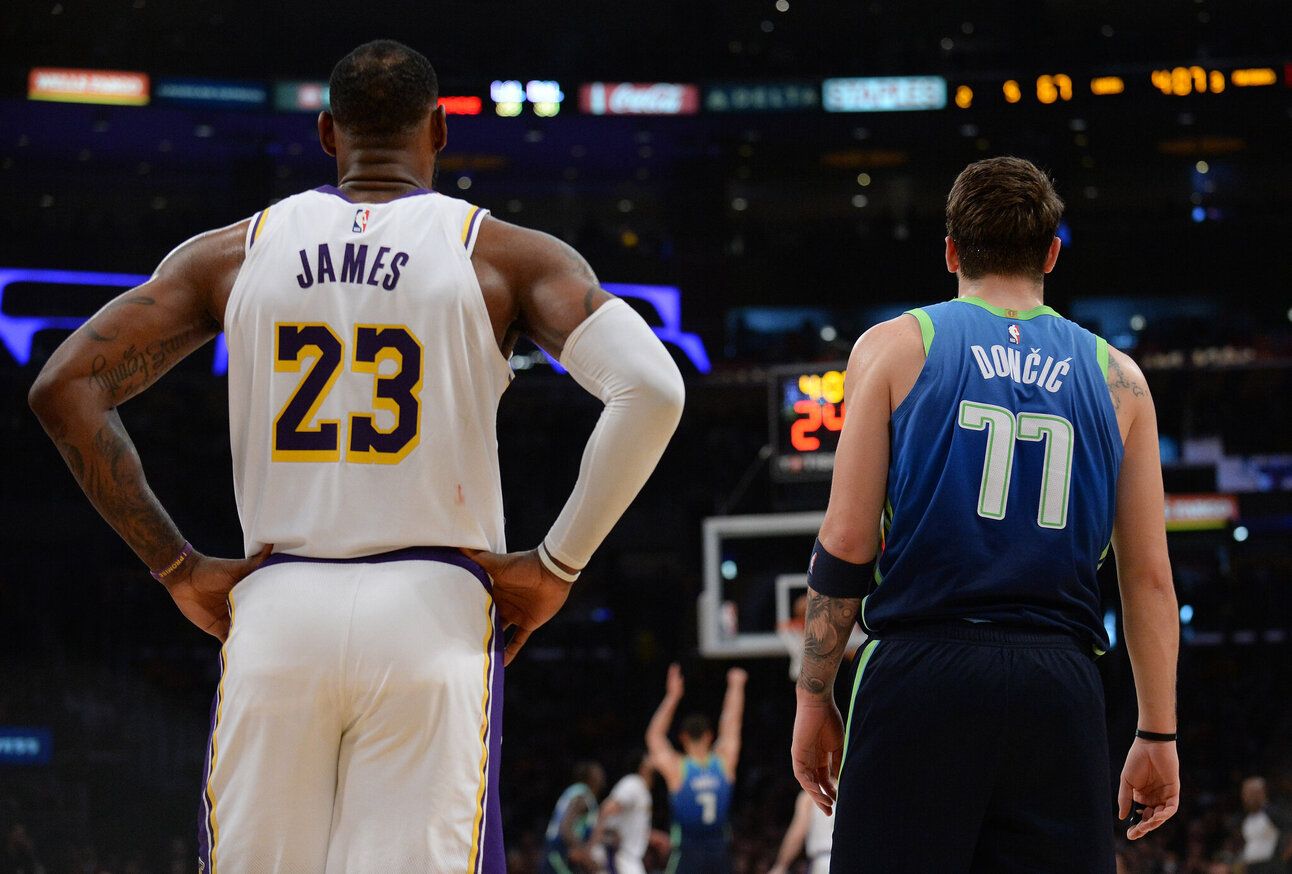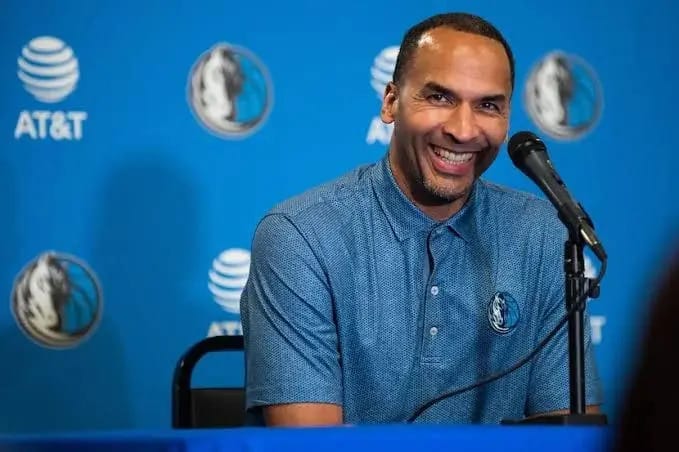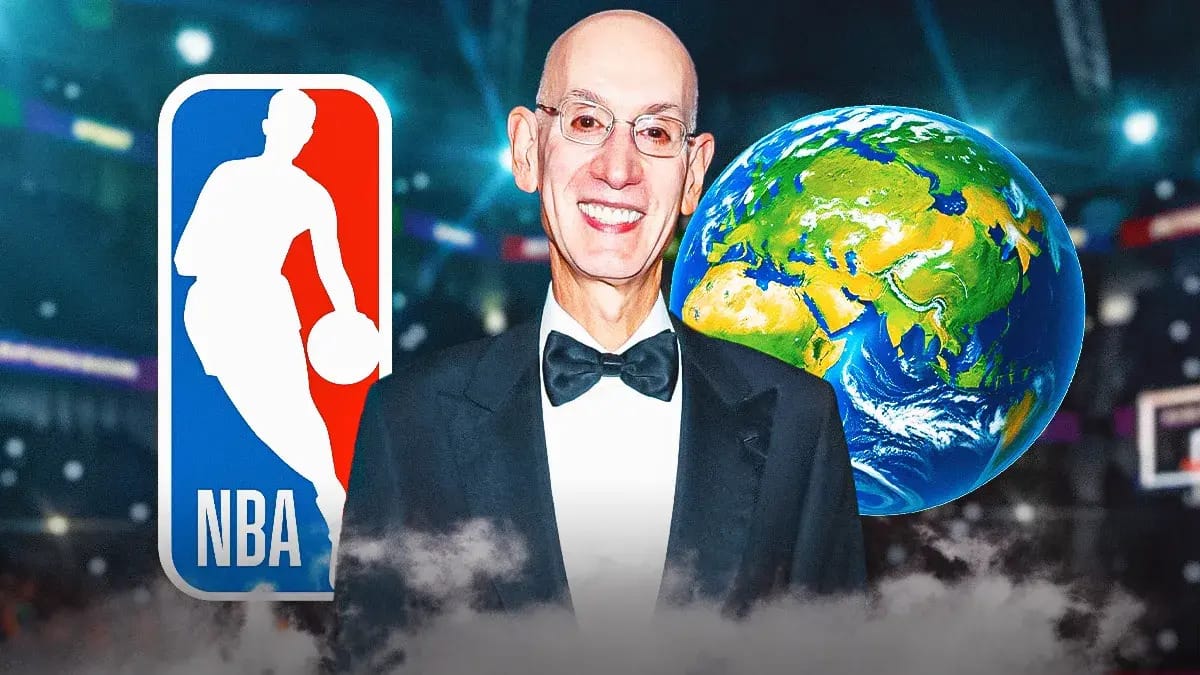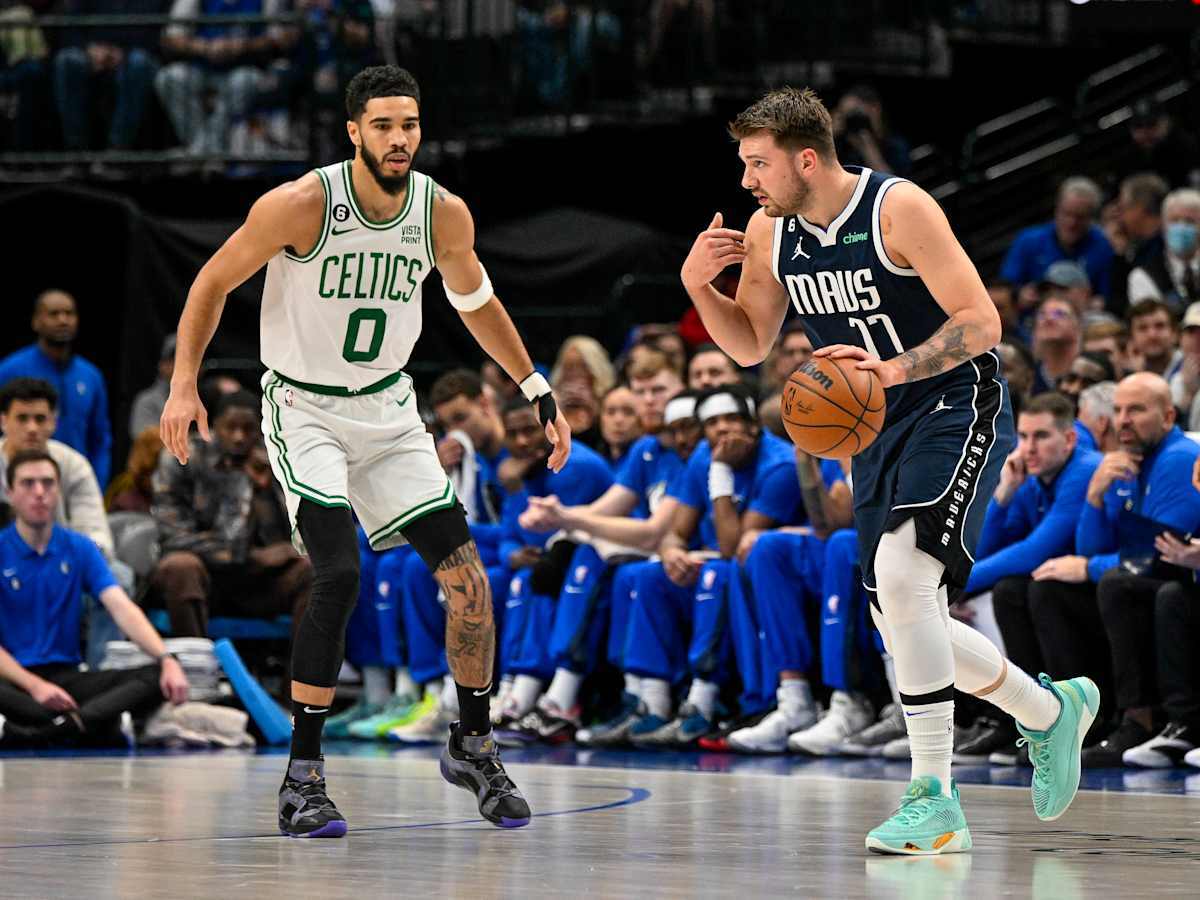- The Winning Shot Newsletter
- Posts
- The New Cold War
The New Cold War
Basketball's biggest rivalry is back, thanks to two of the biggest stars in the game.
In a blockbuster three-team trade, the Los Angeles Lakers have acquired Luka Doncic, marking another chapter in the franchise's history of landing transformative European talents, following in the footsteps of Pau Gasol's 2008 arrival that led to two championships.
Why It Had to Happen
The blockbuster trade between the Lakers and Mavericks emerged from a perfect storm of complementary needs, with both franchises facing critical crossroads in their competitive trajectories. For the Lakers, the urgency was clear and multifaceted. The purple and gold found themselves at a crucial inflection point, sporting one of the NBA's older rosters and facing the reality of LeBron James's upcoming 41st birthday in December 2025. Their offensive struggles were equally concerning, and after LeBron retires the Lakers were fearful that they would return to the dark days. In addition, with over $100M for the 2024-25 season, the window for transformation through free agency was effectively closed.

LeBron James and Luka Doncic
Meanwhile, in Dallas, defensive vulnerabilities had reached a critical mass that demanded immediate attention. The Mavericks' defensive metrics painted a picture of a team desperately needing rim protection and rebounding. Most alarming was their interior defense, where last season opponents feasted to the tune of 55.4 points in the paint per game (second-worst in the league) and shot an astounding 69.8% within six feet of the rim (29th in the NBA). These defensive shortcomings still apparent at the beginning of this season, combined with a hefty $150M+ in salary commitments, created a perfect storm that necessitated bold action.
The trade lies in how precisely it addresses each team's critical weaknesses. The Lakers acquire an elite playmaker in Dončić, whose presence alone injects immediate life into their stagnant offense. The Mavericks, in turn, secure one of the league's premier rim protectors in Davis, rim protection provides an instant solution to their defensive woes.
Who Won the Trade?
In what may prove to be the defining move of his career, Mavericks GM Nico Harrison has wagered his professional legacy on the belief that Anthony Davis can transform Dallas's defensive identity. It's a massive gamble that flies in the face of modern NBA conventional wisdom: trading away a generational offensive talent in his prime for defensive help. History has repeatedly shown that in the NBA, superstar offensive players like Dončić are the rarest and most valuable commodity. The Lakers, following their historical blueprint of acquiring transformative superstars, from Wilt to Kareem to Shaq, have once again landed the biggest fish in the pond. While Davis's defensive prowess is undeniable, the Lakers' acquisition of a 25-year-old MVP candidate who's already among the league's elite playmakers positions them perfectly for both immediate contention and long-term dominance.

Mavs GM Nico Harrison
The simple truth in the NBA remains unchanged - teams with the best offensive superstars tend to write the history books. The Lakers understood this when they acquired Kareem, when they drafted Magic, when they signed Shaq, and when they traded for Dončić. For Dallas, everything now hinges on Davis's ability to not just shore up their defense but to elevate them to championship contention. For Harrison and the Mavericks front office, there will be no middle ground - this trade will either define or destroy their legacy.
The Rivalry Reborn: Contrasting Styles
For NBA Commissioner Adam Silver, this trade couldn't have come at a better time. After watching regular season ratings drop and enduring endless social media complaints about "load management," God has delivered a storyline straight out of central casting.
The NBA's national TV ratings tell a sobering story. The 2023-24 regular season games averaged 1.59 million viewers across ESPN and ABC, lower than the league would like in an era of fragmented entertainment options. Victor Wembanyama's much-hyped career hasn't quite delivered the ratings bonanza some expected, and even the In-Season Tournament produced mixed results.
But now? God has gifted Silver and the league office their dream scenario: Lakers-Celtics, Dončić-Tatum, with all the trimmings. You can almost hear the commissioner's sigh of relief echoing through the NBA's Fifth Avenue offices.
Jayson Tatum, the face of the Celtics, represents a different basketball lineage. A product of Duke University under Coach K, Tatum's game evolved through traditional American basketball channels. The Lakers-Celtics rivalry has served as the NBA's heartbeat for over six decades, but this new chapter promises something unprecedented. While Magic versus Bird elevated the league to new heights in the 1980s, the Dončić-Tatum dynamic transcends individual stardom. This isn't just about two players – it's a clash between basketball cultures, pitting European finesse against American power, with the NBA's soul hanging in the balance.
Global vs. Domestic Cold War
The marketing showdown between Dončić and Tatum transcends traditional sports rivalry, representing a pivotal moment that could reshape the NBA's future. As basketball increasingly becomes a global phenomenon, the league finds itself at a critical crossroads, torn between aggressively expanding its international empire and reinforcing its deep American roots. This isn't merely about numbers—it's about the fundamental direction of professional basketball.
The timing of this clash is particularly significant. With the NBA's domestic ratings showing concerning vulnerability, down 15% from pre-pandemic levels, Dončić's massive European following represents an enticing opportunity. His millions of Instagram followers and the dramatic surge in European viewership of his games point to an untapped market with explosive potential. European NBA viewership has grown, suggesting a frontier ready for conquest. Every Dončić highlight that goes viral in Europe, every primetime game that draws millions of viewers across the Atlantic, strengthens the case for a more globally-oriented NBA.
Yet Tatum's remarkable domestic success tells an equally compelling story. His emergence as a marketable superstar follows the classic NBA blueprint: March Madness hero turned Boston Celtics savior, culminating in a Nike signature shoe launch that shattered first-day sales records for non-legacy athletes.
For NBA executives, this rivalry represents competing visions of the league's future. The Dončić model points toward European primetime games tapping into a potential 750 million viewer market, multi-language broadcasts, and expanded international sponsorship opportunities. This path could lead to more international academies, enhanced global scouting networks, and even potential European expansion.
The Tatum approach, conversely, reinforces the traditional model: strong NCAA partnerships, domestic market growth, enhanced G-League development, and US-focused media rights deals.
The winner of this battle won't just claim individual marketing supremacy—they'll likely shape the NBA's strategic priorities for years to come.

NBA Global
If Dončić's global appeal proves more valuable, expect the league to accelerate its international investments, potentially restructuring broadcast windows to favor European viewers and dramatically expanding its overseas development infrastructure.
Should Tatum's traditional approach prevail, the NBA might instead double down on its domestic foundations, strengthening ties with American basketball institutions and focusing on untapped US markets.
This isn't just about which player sells more jerseys or generates more social media engagement—it's about which vision of basketball's future will prevail. As these two young superstars battle for on-court supremacy, they're simultaneously acting as standard-bearers for competing visions of the NBA's future. The outcome of their rivalry could determine whether basketball's next chapter will be written in multiple languages or remain primarily an American story.
Looking Ahead: Championship Window
The Lakers' acquisition of Dončić creates a fascinating competitive window. At 25, Dončić's prime years align with the Eastern Conference's power structure, where Tatum (26) leads a Celtics team that posted the best record in the NBA during the 2023-24 season.
What makes this rivalry special is the history, but what makes it relevant is having transcendent talents who can carry that legacy forward.
Past Lakers-Celtics rivalries were defined by legendary duos:
• Russell vs. Chamberlain
• Bird vs. Magic
• Pierce/Garnett vs. Kobe
Now, Dončić vs. Tatum presents the potential for a rivalry that could span the next decade, with both players under contract through at least 2027 following their respective extensions.

Jayson Tatum and Luka Doncic
The NBA is always at its best when the Lakers and Celtics are at their best. With these two young superstars, we might be looking at the next great chapter in basketball history.
The statistics and historical context suggest this latest iteration of the rivalry has the potential to match its predecessors in both quality and cultural impact, as two of the game's brightest young stars carry forward the legacy of the NBA's most storied franchises. Get your popcorn early, as basketball fans, we are in for a treat for the next decade.